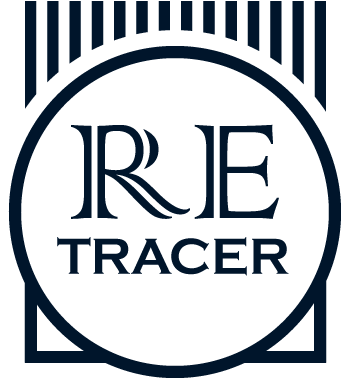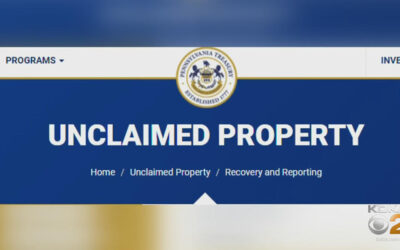How to become a surplus recovery agent is a common question for those who have heard about the business. There are a lot of answers you will find over the internet, but most of them are incomplete and lead to irrelevant answers. It is simple with its five master steps, as most of the mentors suggest in their courses. To perform those steps, you must have to be organized with your data, have a mild voice to perform calls, have some research skills, and work with patience.
Who Should Become a Surplus Recovery Agent
Anyone can try to become a surplus fund recovery agent. But people with research and great calling skills are more likely to become successful. You have to research leads carefully, contact your claimant, sign the agreement and do the paperwork. You must do this patiently because it takes 3-6 month to get approval of the disbursement from the court. So people with those skills and mindset can become a successful surplus recovery agent very easily.
Show Me The Steps
Generate Quality Leads
The journey of becoming a surplus fund recovery agent starts with generating quality leads. This is the first and most important step to be a successful fund recovery agent. You have to know who is considered as a lead in surplus fund recovery business.
The person who owed the money is considered as a lead. He is the former owner of the property sold in auction. You need to find some basic information of a lead like owners name, property address, surplus balance, case number etc. to move forward with the steps. See How to generate quality surplus fund leads to learn detail about surplus fund lead generation process.
Digging Deep Into the Leads
When the leads are generated, you have to do some research work like running a title search to determine if there is any interested lien holder or any priority claimant of the fund. You need to find if there are any open mortgages or liens owing money to confirm the claimable amount, deducting all priority liens. Then you need to sort the leads that are claimable and find the former owner’s contact information like phone number, email and physical mailing address. See How to run a title search and how to skip trace to learn more.
Perform Cold Calling
Whenever the leads are ready, it’s time for the most challenging part, performing cold calling and share your offer to the owners. In this step you have to call the owners, confirm their ownership of the sold property, share your offer with them, share why they should accept your offer and follow-up leads. See How to perform surplus fund cold calling.
Sign the Contract
Now it’s time for signing the contract. In this step, the former owners will give you the power over the fund recovery process with a contingency agreement. Whenever the owners agreed with your offer, you need to prepare a contract agreement so that you have the power over the fund recovery process and request your attorney/lawyer to file a claim. You can also check Nolo’s Consultant & Independent Contractor Agreement Guide
Now it’s time to transfer the contract to your lawyer or attorney, who will prepare and file a motion to recover excess fund. If you hire an attorney or lawyer to work with you in a contingency basis, they will do the rest of the formalities until the surplus check is issued.
How to choose a state to work with?
Choosing a state to work with is also important to become a successful recovery agent. There is a lot of thing you need to consider before start working in a specific state. We suggest a checklist of five important question you need to answer before start working in a state.
Question 1: How the leads are available?
Before choosing a state to work with, you have to find the answer if the leads are available or not. Availability of leads are the most important thing to consider before starting. Some state published the excess fund list in county websites. Some county provides list only via calling to the authority. And some leads can be generated from court document research. So you have to confirm that you can have sufficient amount of leads for your prospecting.
Question 2: What are the rules, regulations and laws?
Then you have to research the statutes to find surplus fund recovery law in a certain state. Some state doesn’t allow third party recovery agent and some are so difficult to work with. So you must have to check if you can beat all the laws and regulations to proceed with the recovery business.
Question 3: How could you process the deals?
Now you have to check the filling process of your deals as well as your agreement with the claimant according to the statutes. Some state allow filling a claim only via attorney working in the state. Some state doesn’t have much restrictions and you can perform filling on your own. So pick the comfortable one that will put your success one step ahead.
Question 4: How are payouts gonna work?
Now you have to check how payout works in certain state. Some county directly pays you from the surplus, and some pay the full amount to the claimant. Some pays the amount to your attorney only. So pick the right one that is comfortable to your business.
Question 5: What is your marketing plan?
Then you need a marketing plan for the preferred working state. You have to consider time zone, distance from your living place, your goal, calling capacity, your offer and strategy and so on.
Those are the five important question you need to answer before jumping into the business.
Where to find a lawyer for surplus fund recovery business?
Finding a lawyer is very easy to go. There are plenty of find a lawyer program you can find over the internet. But we are going to share the most tricky one. If you work in a judicial foreclosure area, pick 5-10 surplus fund cases that have already been claimed. Then you have to search dockets of those cases where you will find who (Law firm/Lawyer) is working there to file the claim. You will also find their contact name and number in the dockets. Now call them and show your offer to work with you.






